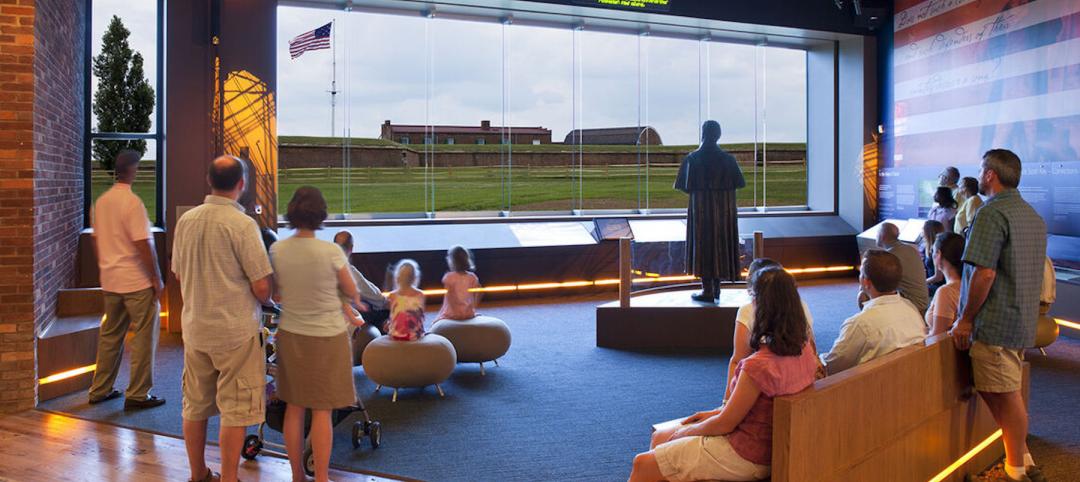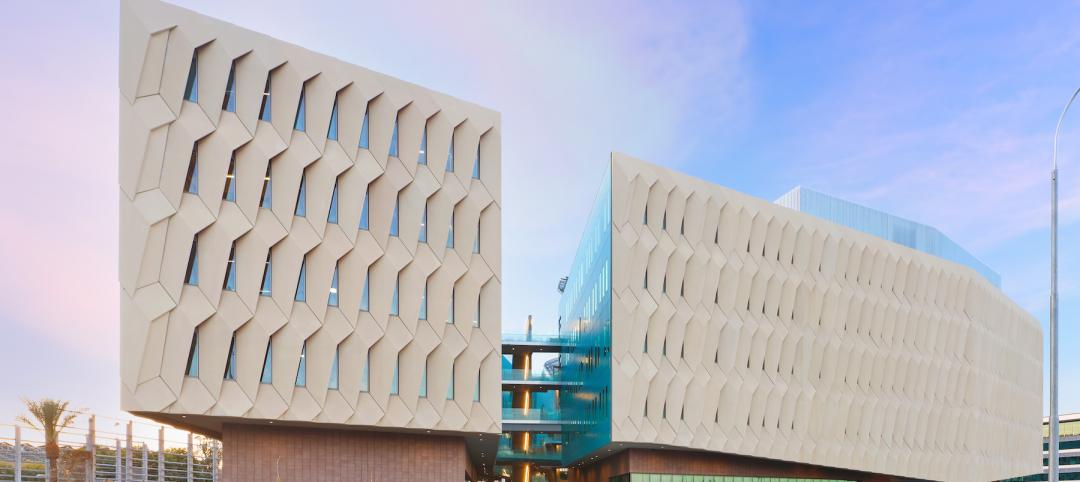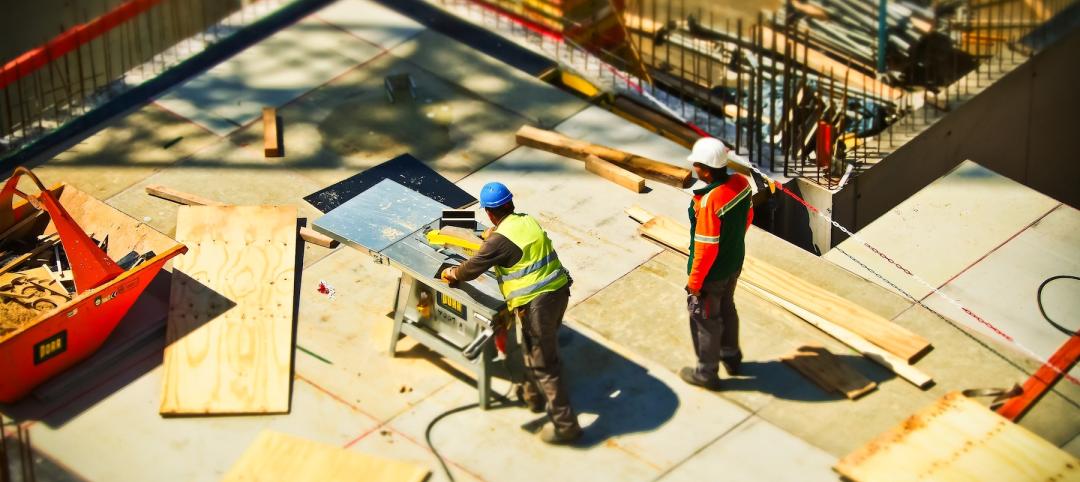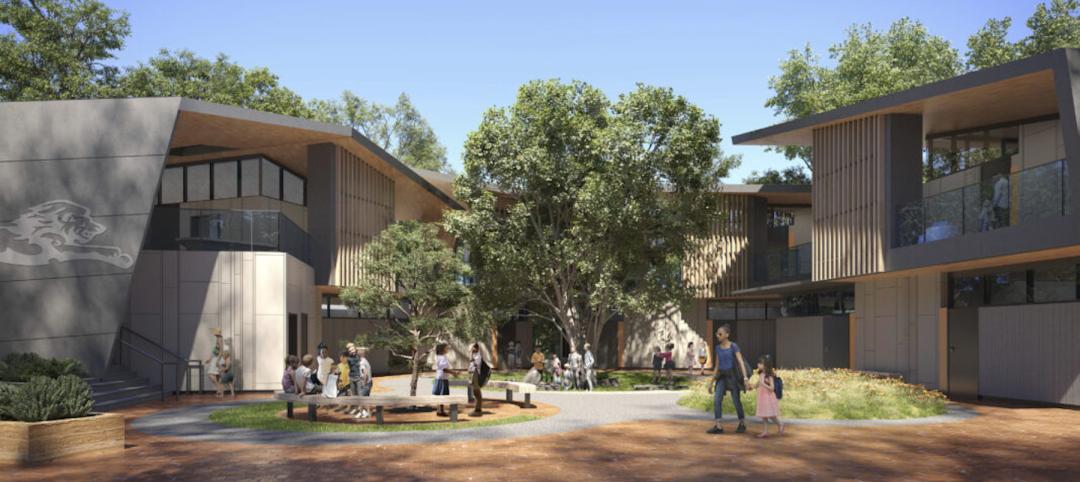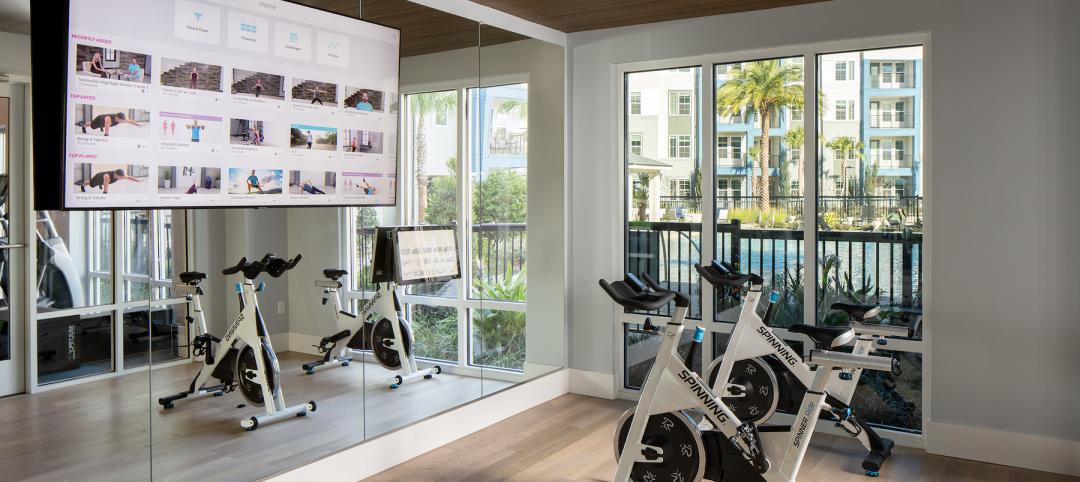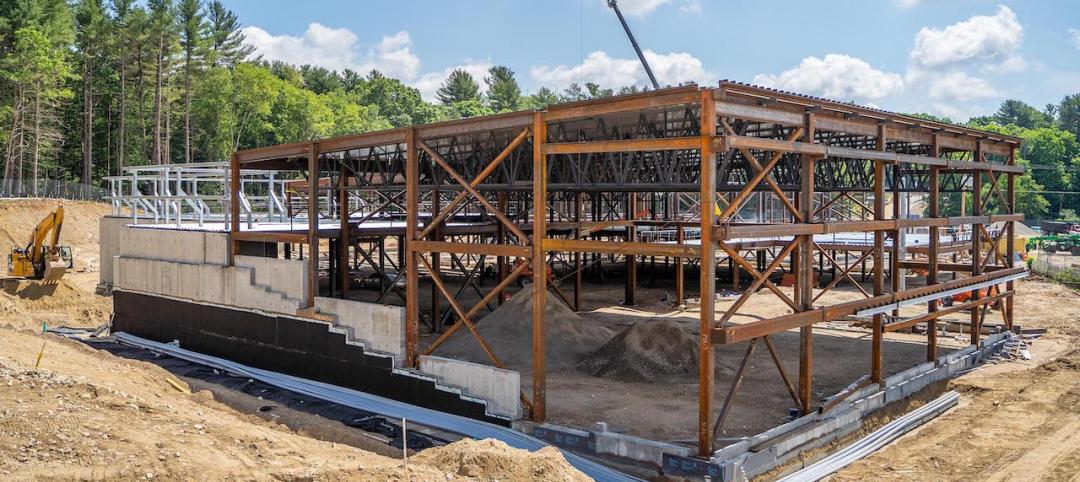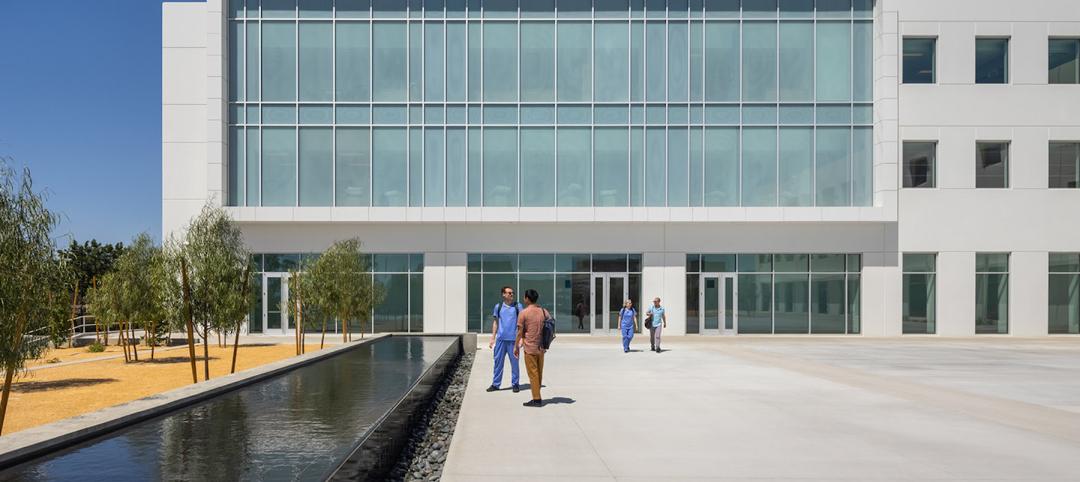The Bahrain National Theatre will be recognized with an Honor Award by the United States Institute for Theatre Technology (USITT) in 2015. The Merit Awards will go to Milton court, the performing arts building at the Guildhall School of Music in London and the Performing Arts Building at Reed College in Portland, Oregon.
Recipients of the USITT Architecture Awards are chosen based on creativity, contextual resonance, functional operation, use of new technology and community contribution. The awards will be presented in Cincinnati, Ohio March 18-21 at USITT’s Annual Conference & Stage Expo. During the event, USITT will offer architecture sessions.
The Bahrain National Theatre, designed by AS. Architecture-Studio with the help of Theatre Projects Consultants of London, is a $50 million project that occupies 12,000 square meters in Manama. The main hall has an Italian theatre layout. The rear of the building contains two tier balconies with balconies running along the side of the construction.
Milton Court is a $142 million projected design by RHWL Architects in London with work by Theatre Projects Consultants. The building has a concert hall with up to 608 seats, a theatre of up to 227 seats, a 128-seat studio theatre, and provides teaching space for the Guildhall School of Music and Drama.
Opsis Architecture of Portland designed Reed College’s $28 million Performing Arts Building with consulting by Fisher Dachs-Associates of New York City. The building contains a consolidated theatre, dance and music programs, a 99-seat box theatre and a 180-seat studio theatre.
For more information, visit www.usitt.org.
Related Stories
Legislation | Aug 5, 2022
D.C. City Council moves to require net-zero construction by 2026
The Washington, D.C. City Council unanimously passed legislation that would require all new buildings and substantial renovations in D.C. to be net-zero construction by 2026.
Cultural Facilities | Aug 5, 2022
A time and a place: Telling American stories through architecture
As the United States enters the year 2026, it will commence celebrating a cycle of Sestercentennials, or 250th anniversaries, of historic and cultural events across the land.
Sponsored | | Aug 4, 2022
Brighter vistas: Next-gen tools drive sustainability toward net zero line
New technologies, innovations, and tools are opening doors for building teams interested in better and more socially responsible design.
| Aug 4, 2022
Newer materials for green, resilient building complicate insurance underwriting
Insurers can’t look to years of testing on emerging technology to assess risk.
Sustainability | Aug 4, 2022
To reduce disease and fight climate change, design buildings that breathe
Healthy air quality in buildings improves cognitive function and combats the spread of disease, but its implications for carbon reduction are perhaps the most important benefit.
Multifamily Housing | Aug 4, 2022
Faculty housing: A powerful recruitment tool for universities
Recruitment is a growing issue for employers located in areas with a diminishing inventory of affordable housing.
Multifamily Housing | Aug 3, 2022
7 tips for designing fitness studios in multifamily housing developments
Cortland’s Karl Smith, aka “Dr Fitness,” offers advice on how to design and operate new and renovated gyms in apartment communities.
Building Materials | Aug 3, 2022
Shawmut CEO Les Hiscoe on coping with a shaky supply chain in construction
BD+C's John Caulfield interviews Les Hiscoe, CEO of Shawmut Design and Construction, about how his firm keeps projects on schedule and budget in the face of shortages, delays, and price volatility.
Codes and Standards | Aug 3, 2022
Some climate models underestimate risk of future floods
Commonly used climate models may be significantly underestimating the risk of floods this century, according to a new study by Yale researchers.
| Aug 3, 2022
Designing learning environments to support the future of equitable health care
While the shortage of rural health care practitioners was a concern before the COVID-19 pandemic, the public health crisis has highlighted the importance of health equity in the United States and the desperate need for practitioners help meet the needs of patients in vulnerable rural communities.







